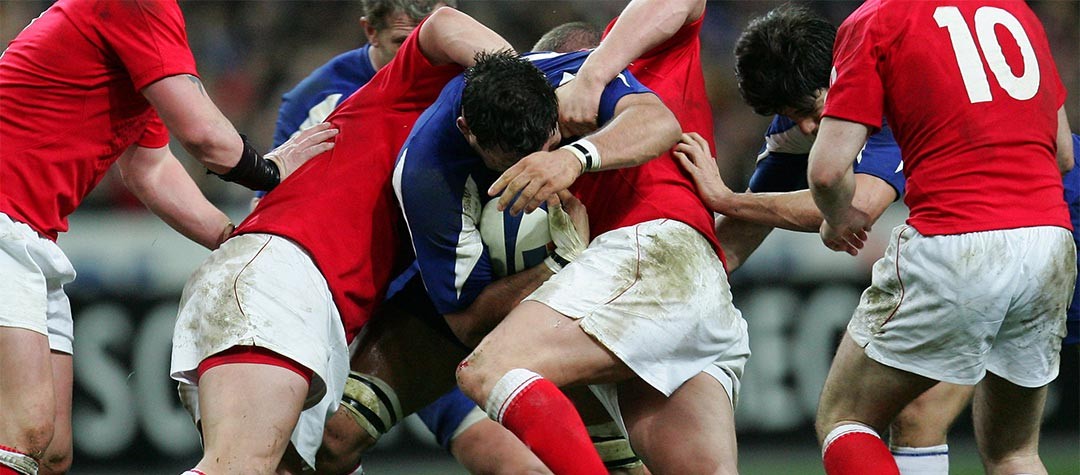
College rugby is a sport played by college students across the United States. The majority of teams are run by student club sports departments at their universities. However, some schools have made a commitment to hiring paid coaches and scholarships to support the team. The sport has gained varsity status, with more schools adding women's programs.
USA Rugby manages the majority of collegiate rugby leagues. This includes the men’s Division I, Elite, and women's conferences D1 and 2. Women's rugby has also been sanctioned by the NCAA. It is part a program called Emerging Sports for Women, meaning it must be able to achieve championship status in ten years.
Historically, collegiate Rugby was administered by local unions. Since 2010, many programs are now part of conference structures. This has seen more colleges offering the sport for a lower price. Some of them have gone on the compete on a national stage.

The Ivy Rugby Conference is a high-profile example of collegiate rugby's first conference structure. It was created in 2009 to improve the play of Ivy League players. To manage the league independent of LAUs, there were a number committees.
Ivy Rugby Conference, a popular venue in college athletics, has consistently attracted academic and commercial attention. Penn Mutual Life Insurance has signed a multiyear deal with Talen Energy Stadium. This was previously known as PPL Park.
Another governing body is the College Rugby Association of America. The CRAA works to ensure that collegiate rugby student athletes have the best possible experience. Visit their website to find out more about the group and its members. You can also download a free PDF that contains a comprehensive rundown of critical steps for aspiring college rugby players.
College sport in the United States is a multibillion dollar industry. There are currently over 2500 colleges and universities that offer a range of sports, and many more are offering athletic and athletics support. Additionally, top student athletes are finding it more affordable.

A new collegiate rugby league is forming in the Upstate New York area. Upstate New York Collegiate Rugby Conference features competitive rugby at 2 tiers. Each tier is based in a different area. The overall division will remain the same. During the fall, teams will compete in a conference divided into East and Northern New York divisions. The league will include a provisional division during winter which allows non-15s games outside the NIRA.
One of the most successful collegiate rugby clubs in the United States is Fitzwilliam College. The school was named Cuppers Champion in 2012 and won Division 1. Alistair Hignell and Eddie Butler were both alumni of the school. There are currently 25 colleges that sponsor varsity rugby programs.
As collegiate rugby becomes more popular, so is the demand for athletic support and funding. There will be more varsity rugby teams that can help top-level student rugby players pay for their education in the future.
FAQ
Extreme sports are dangerous.
There are many situations that could occur when you take part in extreme sports. There are many possible outcomes, including falling off cliffs, injury, and being captured by the media.
But if you are aware of these risks and take precautions, there should be no problems.
All you need is the right equipment, and the proper knowledge to use it.
You will receive medical attention if you are hurt while competing in extreme sports. Medical attention will be given to anyone who is injured.
Sometimes injuries happen without warning. Sometimes, it's because of poor judgment.
One example is climbing too close the cliff edge to avoid slipping over it. Hypothermia can also occur if you plunge into icy waters.
Other times, accidents occur because of mistakes made by others. In some cases, injuries can be caused accidentally by other parties.
Sometimes, bad luck can cause accidents. As you fall, you might hit a boulder. Or you may be struck by lightning.
What happens if someone falls off a cliff while doing extreme sports?
Extreme sports may cause injuries if you tumble off a rock face.
This injury is very serious. Falling from a height above 30 meters (100 feet) could result in your death.
What makes extreme sports so popular?
Extreme sports can be dangerous. However, they also offer adrenaline-pumping thrills and provide a sense of achievement.
Extreme sports can be expensive and time-consuming. However, this makes them accessible to people who would otherwise not have had access to such activities.
Extreme sports are popular because of these factors. It might be worth thinking twice about whether you are willing to put your life at risk for something that could possibly kill you.
Is it an extreme sport to play football?
It depends on who you ask. It is a game that millions have played for thousands of decades all over the globe. Many would argue that it's not a sport, but a form entertainment. Others argue that it is a similar sport to any other. And then some believe that football is nothing less than the ultimate sport.
The truth is somewhere in the middle of these extremes.
Football is an extreme sports. However it is also a game that requires strategy, skill, teamwork.
What is the most hazardous sport in extreme sports?
It is snowboarding as you balance on top and then fall down from high altitudes. If you fall the wrong way, you could end up in a grave situation.
Why is extreme sports growing in popularity?
We think the popularity of extreme sports has increased because people want to experience something exciting. They enjoy being part of something special.
They enjoy taking risks and pushing their limits.
People enjoy watching other people do their stunts.
Another reason for the increase in popularity is that extreme sports are now available in places that weren't before. Indoor skydiving is available in many cities. Businesses all over the world offer bungee jumps.
Statistics
- Landscaping and grounds-keeping— according to government labor statistics, about 18 out of 100,000 workers in the landscaping industry are killed on the job each year. (rosenfeldinjurylawyers.com)
- Since 1998, overall participation has grown nearly 25% - from 5.2 million in 1998 to 6.5 million in 2004. (momsteam.com)
- According to the United States Parachuting Association, about 21 people die yearly from skydiving. (livehealthy.chron.com)
- Based on the degree of difficulty, the routine is scored on form and technique (50 percent), takeoff and height (20 percent), and landing (30 percent). (britannica.com)
- Approximately 50% of all wakeboarders have been participating in the sport for 1-3 years. (momsteam.com)
External Links
How To
How can I learn to ski?
Skating is a sport in which you use your feet for movement on ice and snow. You can either do it alone or with a group of friends. It is a sport that requires balance and coordination. You must first learn how to stand upright on the board. You can then practice balance by moving forward and reverse. Finally, try jumping off ramps or stairs. Once you learn these skills, you will be able skate faster and further than you ever thought possible.
Here are some tips to help you get started in skating.
-
Make sure you know what type and brand of skates your are interested in buying. There are many different types of skates like inline skates or roller blades. Speed skates, figure and speed skates are all available. The type of skill you have will determine which skates you should purchase. If you are new to the sport, speed, inline and roller skates are great choices. Figure skaters usually prefer to buy boots that provide support during their performance.
-
Buy proper equipment. Your choice of gear will depend on whether you intend to compete in events or simply enjoy skating around the park. If you plan to compete, make sure you choose skates that fit well, offer excellent stability, and are made of durable materials.
-
Try out new tricks. When learning any skill, practice makes perfect. It's not necessary to wait until you are proficient in a particular skill to learn it. Instead, learn simple moves such as walking backwards, sliding sideways, spinning and so on. This way you won't feel intimidated by trying difficult maneuvers later.
-
Keep learning. Never expect to become a skilled skater overnight. The best skaters spend many years honing their craft. They never stop improving. You have many options to improve your technique. Take lessons at a local rink. Or, watch videos online.
-
Be patient. Don't be discouraged if you have difficulty with a difficult maneuver. Keep practicing. You'll eventually feel confident enough to do advanced stunts.
-
Have fun. Skating, which doesn't require special equipment or any training, is a great sport for beginners. Plus, it's a lot of fun!